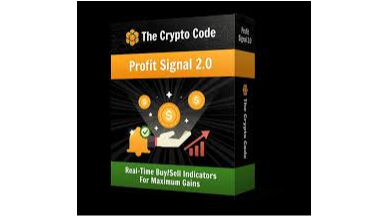Curious about automated cryptocurrency trading but unsure where to start? Learn the basics of systematic trading approaches and what factors to consider before exploring this investment method.

Cryptocurrency markets operate 24 hours a day, seven days a week. This constant activity creates both opportunities and challenges for individual investors who cannot monitor markets continuously.
Automated trading systems have emerged as one approach some investors use to participate in crypto markets more systematically. But what exactly are these systems, and what should you know before considering them?
Understanding automated trading starts with recognizing that all investments carry risk, and cryptocurrency investments can be particularly volatile.
Automated trading involves using software to execute buy and sell orders based on predetermined criteria. Instead of manually placing each trade, investors set parameters that trigger trades when specific market conditions occur.
For example, a system might be programmed to purchase a cryptocurrency when its price drops below a certain moving average and trading volume increases. The software monitors these conditions continuously and executes trades according to the programmed rules.
This systematic approach differs from manual trading, where investors make individual decisions about when to buy or sell based on their real-time analysis of market conditions.
Many cryptocurrency investors face similar obstacles regardless of their experience level:
Market Timing Difficulties - Cryptocurrency prices can change rapidly at any time of day. Individual investors may miss significant price movements while sleeping or attending to other responsibilities.
Emotional Decision-Making - Fear of missing out (FOMO) during price increases or panic during market downturns can lead to poorly timed investment decisions that may not align with long-term strategies.
Information Processing - The cryptocurrency market generates vast amounts of data from multiple sources. Processing this information to make informed decisions can be overwhelming for individual investors.
Consistency Challenges - Maintaining discipline in following a predetermined investment strategy can be difficult, especially during periods of high market volatility.
Automated trading systems are designed to address some of these common challenges through systematic approaches:
Continuous Monitoring - Software can monitor market conditions 24/7, potentially identifying opportunities that occur outside normal business hours.
Emotion Removal - By following predetermined rules, automated systems can help remove emotional factors from trading decisions.
Data Processing - Software can analyze multiple market indicators simultaneously, processing information faster than manual analysis.
Strategy Consistency - Once programmed, systems follow the same rules consistently, regardless of market conditions or external factors.
It's important to note that while these systems address certain challenges, they do not eliminate investment risk or guarantee profits.
Risk Assessment - All cryptocurrency investments carry substantial risk, including the potential loss of your entire investment. Automated systems do not reduce this fundamental risk.
Strategy Understanding - Before implementing any automated strategy, investors should thoroughly understand how it works, what market conditions it's designed for, and what risks it carries.
Platform Security - Automated trading platforms require access to your exchange accounts. Research the security measures and reputation of any platform you consider using.
Market Conditions - Strategies that perform well in certain market conditions may perform poorly in others. Past performance does not indicate future results.
Technical Limitations - Automated systems can experience technical failures, connectivity issues, or programming errors that may affect their operation.
If you're interested in learning more about automated cryptocurrency trading, consider starting with comprehensive educational resources that cover:
Risk Management Principles - Understanding position sizing, stop-loss orders, and portfolio diversification concepts before implementing any trading strategy.
Market Analysis Fundamentals - Learning about technical indicators, chart patterns, and market cycles that form the basis of many automated strategies.
Platform Evaluation - Understanding how to assess different automated trading platforms, including their features, costs, and security measures.
Strategy Testing - Learning about back-testing methods that allow you to evaluate how strategies might have performed using historical market data.
It's crucial to maintain realistic expectations about automated trading systems:
Some investors have reported positive experiences with systematic trading approaches, while others have experienced losses. Individual results vary significantly based on market conditions, strategy selection, risk management, and timing.
If you want to explore automated cryptocurrency trading further, prioritize education over immediate implementation. Understanding the fundamentals helps you make more informed decisions about whether this approach aligns with your investment goals and risk tolerance.
Comprehensive educational programs typically cover both theoretical concepts and practical applications, helping you understand not just how to use these systems, but whether they're appropriate for your situation.
Check out The Crypto Code to get more detailed information about automated trading concepts and strategies and educational resources.
Disclaimer: The information provided on this page does not constitute investment advice, financial advice, trading advice, or any other sort of advice and it should not be treated as such. This content is the opinion of a third party and this site does not recommend that any specific cryptocurrency should be bought, sold, or held, or that any crypto investment should be made. The Crypto market is high risk, with high-risk and unproven projects. Readers should do their own research and consult a professional financial advisor before making any investment decisions.
